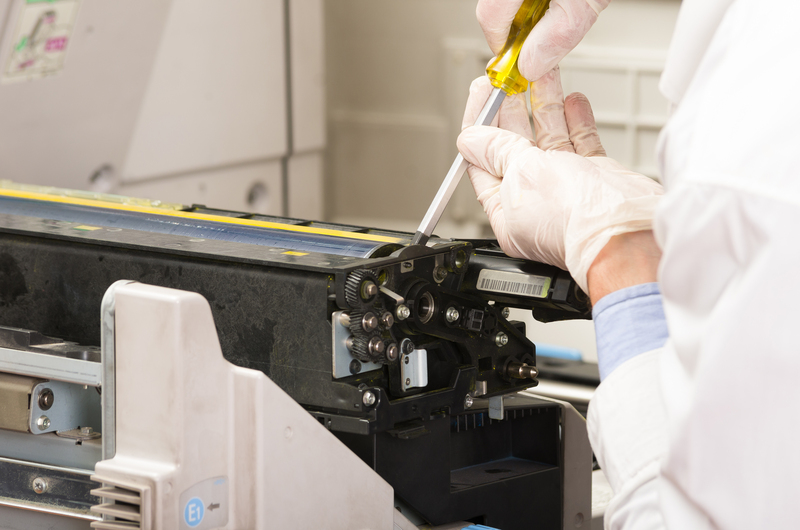Cutting-Edge Food Waste Recycling for Modern Restaurants
In the bustling world of modern gastronomy, sustainability has emerged as a key component of a successful restaurant strategy. The growing concern over food waste management has urged restaurateurs to seek innovative solutions. Here's where cutting-edge food waste recycling technologies come into play, offering a sustainable approach that aligns with both environmental and economic goals.
Understanding the Scope of Food Waste in Restaurants
Each year, billions of tons of food are wasted across global restaurants. This not only results in economic losses but also contributes significantly to environmental degradation. Modern restaurants are under increasing pressure to implement efficient food waste recycling systems to mitigate these impacts.
Why is Food Waste Recycling Important?
Food waste recycling is crucial as it transforms what could be landfill-bound garbage into valuable resources. By recycling food waste, restaurants can:
- Reduce landfill contributions: Less food waste means less burden on overflowing landfills.
- Lower carbon footprint: Recycling food waste reduces methane emissions, a potent greenhouse gas.
- Generate renewable energy: Some advanced systems can convert organic waste into bioenergy.
- Cut operational costs: Effective waste management processes can lead to significant cost savings.

Innovative Techniques in Food Waste Recycling
The need for effective food waste recycling techniques is higher than ever. Here are some of the most innovative methods that modern restaurants are employing:
1. Anaerobic Digestion
Anaerobic digestion is a popular method among modern restaurants keen on sustainable practices. This process involves breaking down organic food waste in the absence of oxygen, resulting in the production of biogas--a renewable energy source.
Benefits of Anaerobic Digestion:- Produces biogas, which can be used to generate electricity or heat.
- Reduces greenhouse gas emissions by capturing methane.
- Produces nutrient-rich digestate, which can be used as a natural fertilizer.
2. Composting Innovations
Composting has been a time-tested recycling method, but recent advancements have revolutionized this practice.
Advanced Composting Systems:- In-vessel composting: Enclosed system that speeds up the composting process and reduces odor.
- Hot composting methods: Utilizes higher temperatures for faster breakdown.
These modern techniques enable restaurants to compost on site efficiently, transforming waste into valuable soil amendments.
3. Food Waste to Animal Feed
Some innovative recycling programs focus on converting food waste into animal feed, reducing the waste's environmental impact and adding economic value. This involves treating and repurposing food scraps to meet nutritional standards suitable for livestock.
Advantages of Conversion to Animal Feed:- Reduces the volume of food waste substantially.
- Provides an additional revenue stream by selling treated waste.
- Contributes to a circular economy and resource conservation.
The Role of Technology in Food Waste Recycling
Advanced technologies play a pivotal role in optimizing food waste recycling practices. Here, we examine some technological advancements paving the way for modern restaurants:Food Waste Tracking Software
By leveraging cutting-edge software, restaurants can track food waste patterns through data analytics. This empowers restaurants to identify inefficiencies and implement proactive measures for waste reduction.
On-Site Waste Processing Units
Compact and efficient on-site waste processing units have become increasingly popular for their ability to convert food waste directly into compost or greywater within the restaurant premises. Such systems significantly cut down on waste transportation and processing costs.
Blockchain for Waste Management
Blockchain technology is revolutionizing waste management by improving traceability and accountability in the recycling process. By recording transactions on an immutable ledger, restaurants can ensure transparency and trust throughout the waste recycling chain.

Best Practices for Implementing Food Waste Recycling
For the successful implementation of food waste recycling programs, modern restaurants should adhere to some best practices:
- Employee Training: Educating staff on proper waste segregation and recycling processes can significantly reduce contamination and enhance efficiency.
- Customer Engagement: Encourage patrons to participate in sustainability efforts through awareness campaigns and initiatives like "take what you can eat" policies.
- Partnering with Experts: Collaborate with waste management professionals to tailor recycling programs suited to the specific needs of the restaurant.
- Regular Auditing: Conduct periodic waste audits to identify areas of improvement and adapt strategies accordingly.
The Future of Food Waste Recycling in Restaurants
As the world continues to prioritize sustainability, the future of food waste recycling looks promising. Emerging technologies and governmental policies are expected to drive progress in this field, pushing more restaurants to adopt eco-friendly practices.
By adopting these cutting-edge solutions, modern restaurants not only contribute positively to environmental sustainability but also position themselves as leaders in the culinary industry's green revolution.
Ultimately, food waste recycling is more than a trend; it is a sustainable movement that modern restaurants should embrace to ensure a prosperous future for both the planet and their businesses.